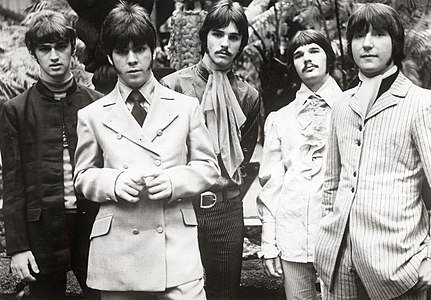The Origins and Success of ‘Yummy Yummy Yummy’
The song ‘Yummy Yummy Yummy’ by Ohio Express holds a significant place in the annals of pop music history. The origins of this catchy tune trace back to the late 1960s, a time when bubblegum pop was at its zenith. Ohio Express, originally a garage rock band from Mansfield, Ohio, underwent several transformations before solidifying their lineup that would bring the song to life. Key to this transformation was the involvement of Joey Levine and Arthur Resnick, prolific songwriters and producers known for their work in the pop genre.
Joey Levine, who also lent his voice to the track, and Arthur Resnick crafted ‘Yummy Yummy Yummy’ with a clear intention to create a song that was as catchy as it was simple. The song’s lyrics, repetitive and straightforward, coupled with an infectious melody, encapsulate the essence of bubblegum pop. This genre was characterized by its appeal to younger audiences, often featuring light-hearted, sing-along lyrics paired with upbeat tempos.
The recording sessions for ‘Yummy Yummy Yummy’ were meticulous. Levine and Resnick, along with the band members of Ohio Express, ensured that every element of the song resonated with the carefree spirit they aimed to capture. Their efforts paid off significantly. Upon its release, the song quickly climbed the charts, securing a peak position within the top ten on the Billboard Hot 100. The single’s success was further cemented when it was certified gold on June 17, 1968, a testament to its widespread popularity and commercial impact.
Beyond the U.S., ‘Yummy Yummy Yummy’ achieved notable chart positions internationally, reflecting its global appeal. The song’s infectious hook and memorable lyrics contributed to its enduring legacy, and it remains a quintessential example of the bubblegum pop era. According to sources like Billboard and historical music archives, the song’s impact on pop culture and its commercial success are undisputed, making it a landmark in Ohio Express’s career and the music industry of the 1960s.
Impact on Pop Music and Legacy of Ohio Express
The release of “Yummy Yummy Yummy” by Ohio Express in 1968 marked a significant moment in the pop music landscape. The song’s immediate success, achieving gold status, was a testament to its broad appeal and the burgeoning popularity of the bubblegum pop genre. Characterized by catchy melodies, simplistic lyrics, and a youthful exuberance, bubblegum pop was designed to resonate with younger audiences, offering an accessible and fun alternative to the more serious tones of rock and roll and other genres of the time.
“Yummy Yummy Yummy” exemplified the bubblegum pop ethos, with its infectious chorus and straightforward, light-hearted lyrics that were easy to sing along to. This approach not only helped Ohio Express gain widespread recognition but also set a precedent for future pop acts. The song’s success demonstrated that there was a substantial market for music that prioritized catchy hooks and an upbeat, carefree vibe.
The influence of “Yummy Yummy Yummy” and Ohio Express can be seen in the subsequent proliferation of bubblegum pop bands and songs. Groups like The Archies, known for their hit “Sugar, Sugar,” and The 1910 Fruitgum Company, with songs like “Simon Says,” followed in Ohio Express’s footsteps, continuing to popularize the genre. These acts contributed to a musical movement that was both commercially successful and culturally significant, influencing the development of pop music in the late 1960s and beyond.
The legacy of “Yummy Yummy Yummy” extends beyond its initial chart success. The song has been covered by various artists over the decades, each version bringing a new interpretation while maintaining the original’s infectious charm. Its inclusion in films, commercials, and television shows has cemented its place in pop culture history, ensuring that new generations continue to encounter and enjoy this quintessential bubblegum pop hit.
For further insights into the historical context and impact of Ohio Express and “Yummy Yummy Yummy,” references such as “Bubblegum Music is the Naked Truth” by Kim Cooper and David Smay provide an in-depth exploration of the genre and its cultural significance.

